|
Richard Harris is the Founder of the Harris Consulting Group. Richard teaches salespeople how to earn the right to ask questions, which questions to ask, and when. He is a 5x top 25 inside Sales Professional and strategic advisor. This article is part of the High AQ Interview Series where executives, academics, and thought leaders discuss elevated answers. The following interview is edited for clarity. Sales Role-PlayingDr G: “You are known for your use of role playing during sales training. How do you conduct role playing?” Richard Harris: “There are three steps: First, I teach a key concept. Second, I role play as a salesperson. Third, the trainees role play as the salesperson.” Dr G: “It is interesting you start with concept. I interviewed theatre directors and my stated objective was to better understand the procedures and actions actors used to prepare for their roles and to perform on stage. To my surprise, the directors shifted the focus away from procedures and actions to concepts. In short, effective actors need to have an indwelling into concepts that formed the identify of a character. For example, a character could be “jealous”, a “martyr”, or “honorable.” It was the actor’s job to understand their character’s motivations and harness that motivation into a performance visible to the audience (as procedures and actions in AQ terms). Can you give us an example of concepts relevant to a sales role play?” Richard Harris: “Yesterday I was working with a global organization. The topic of a difficult negotiator came up. The client always wants 50% off. These are sizable deals; each one is worth $200K to $300K. The client organization is a Fortune 500 brand that has been a client for years. The buyer is new to his role…. Let’s role play this.” Dr G: “I’m game.” Seller (Richard): “Hi Brian, good to catch up with you. The goal is to answer your questions regarding your concerns. I want to answer them directly. You have been with us for 10 years. We want to keep the partnership going. We are going to talk about commercial terms. Is there something else?” Buyer (Brian): “Thank you, Richard. I know we have had a great relationship. I want to be sensitive to your time. I really need to get a better deal. We've invested a lot of time and energy in this relationship. I don't want to look elsewhere. I don't want to put this out to bid. Can you work with me?” Seller (Richard): “The challenge is 50%. We want to keep working with you. The challenge is that 50% does not feel fair. I can appreciate your need to be treated fairly. My question to you…Are you stuck at 50% or is there flexibility?” Buyer (Brian): “50% is my number.” Seller (Richard): “I would hate to have you go out to bid. When you think about going out to bid, have you been able to justify this need in the marketplace?” Buyer (Brian): “It’s been over 2 years and a lot has changed, so I really don’t have a good sense of where pricing is at.” Seller (Richard): “Our pricing is dictated on what the market dictates, not a finance person with spreadsheets. I'm stuck to trying to justify 50%. How could I do that?” Buyer (Brian): I'm assuming you have taken a look at the marketplace… can you share the prices with me in the marketplace? I know you’re trying to get the best deal on your side. I'm trying to do that on my side. That’s business.” Seller (Richard): “Yes, business. Not personal. We’re so embedded in 16 depts in your organization. How long will it take you to scope the project and write the bid, not just bid it out?” Buyer (Brian): “It will take 4 months, if I'm being realistic.” Seller (Richard): “Would it just be you, or 3 others from other areas?” Buyer (Brian): “It would be a few on my side and an analyst devoting a few weeks of work.” Seller (Richard): “5 people.” Buyer (Brian): “That is realistic.” Seller (Richard): Just to scope out the bid, my guess there is more than 40 hours of work per person, 200 hours. Is that reasonable? Buyer (Brian): “Yes.” Seller (Richard): “Then you have to get 3 bids.” Buyer (Brian): That is our standard practice. Seller (Richard): “Do you do 1 meeting with each person? Or multiple meetings, including a security review, among others?” Buyer (Brian): “There will be multiple meeting layers; of course.” Seller (Richard): “In terms of meeting times that is 10 hours (10 meetings with each vendor). 3 persons on your side with each of these calls. Every meeting is 30 hours of time. Then there is another 30 hours after the meeting. We are quickly getting to 500 hours even before we talk implementation. When we do this, there are 6 months of install (hundreds of hours), and then hundreds of hours (un-installing our solution). At this point I broke character because I felt the pressure as my character; the economic impact wheels were spinning in my character’s head. I could sense, in a visceral way, the implausibility of my position as the buyer character. We proceeded to debrief the role-playing exercise. Richard Harris: “It is all about economic impact. In the role play, the buyer had a list of 10 things, and his team has 10 things. All the projects get delayed. What is the impact of that? This is the opportunity cost.” Dr G: “You’re framing the conversation in unobjectionable terms… As a seller, you could have said we can save you $X, but that is not believable (every seller can make these out-of-thin air promises), you have put the costs in terms that the client can see.” Richard Harris: “That is part of it. It is not costs, it is opportunity costs and economic value. In the buyer’s eyes, if things don’t go well, he is on the line. It is a 10-year project. I’m painting the buyer into a corner.” Dr G: “This is fascinating. In AQ terms, which concepts are important to this negotiation?” Richard Harris: “There are a couple of important concepts. First, in the setup we discussed a “difficult negotiator.” It takes two to negotiate. If we start with the seller, we can understand important ideas that are holding the negotiations back. The seller’s organization had a mandate to ‘never walk away’ from a deal. This is recipe for disaster. Classic negotiation theory would suggest this is a lose-win orientation [Yielding]. Using the role-play, it illustrated a win-win approach [Problem Solving] by a seller. Also, the role play demonstrated how to move a buyer from win-lose [Dominating] approach to a win-win [Problem Solving] approach.” Dr G: “In AQ terms, you’re pointing out key concepts to avoid, such as Yielding by a seller, and the importance of shifting the seller and buyer both toward Problem Solving.” Richard Harris: “Unless you do role-playing, the salespeople don’t connect in a deep way to things they should change. Never walk away from a deal [an action in AQ terms] is connected to Yielding [a concept in AQ terms]. To a person, the sales organization might say we don’t engage in “lose-win” negotiating, but that is exactly what they are doing when they have a tunnel-vision tactic like never walk away. Only in a role play, does the big gap [disconnect between action and concepts in AQ terms] become real to the point they realize they need to change. Also, I want to point out that as a seller you have to not only be focused on important concepts like Problem Solving, but the most effective sales people will help orient the buyer toward concepts they need to be successful as a buyer, in this case, Problem Solving. In other words, both the buyer and seller need to focus on Problem Solving. From my perspective, customers don’t know how to buy. Customers must be guided and instructed on how to buy your product and service. In this role-playing, you as the buyer, became oriented toward problem-solving, a key concept. Thoughtful selling extends beyond concepts associated procedures and actions [answers in AQ terms]. For example, it is not just what you do, but how you do it. In the prior role play, I painted the buyer into a corner. But, in terms of how I did it, I could have pulled many other tactical levers. For example, I did not get into legal costs associated with going out to bid. So on and so forth, the effective seller gets the actions right. Finally, I want to make one last point regarding role-playing. I think there is a difference between ‘having a script’ and ‘sounding scripted.’ You want to have a script, but you want to remain authentic. This means that role-playing forces the conversation to be natural and for the seller to find their own voice.” High AQ Takeaway: Those with High AQ get role-playing right. The following points are a summary of what makes for an effective role play in AQ terms.
If you found Answer Intelligence (AQ)™ an interesting framework, please share this post with others. Also, try our Sales AQ free test to gauge your AQ.
Additionally, you are encouraged to learn more about N.E.A.T. Selling™, a philosophy developed by Richard Harris that is consistent with the role-playing examples discussed in this article.
1 Comment
|
Access Octomono Masonry Settings
AuthorDr. Brian Glibkowski is the author of Answer Intelligence: Raise your AQ. Archives
October 2022
Categories
All
|
About AQ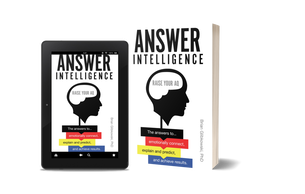
Answer Intelligence (AQ)™ is the ability to provide elevated answers to explain and predict in a complex world, emotionally connect, and achieve results. Are you conversation ready?
Meet HarperHarper's story illustrates the transformative power of AQ in her own career and in the success of her organization.
|
AQ Upskilling PlatformAI is machine thinking. AQ is human thinking (developed based on academic research) in terms of simple questions (why, what, how, when, where, who) and answers (concept, metaphor, theory, story, procedure, action) that elevate human-to-AI and human-to-human communication.
|
Quick Access LinksBuy the Book
Explore AQ (Free Assessment) AQ TEDx Video Professional Services Firms + AQ Brian Glibkowski, PhD - AQ Creator Meet Harper - Overview Video Meet Mark - Software Case Reasons You Need AQ |
Featured |

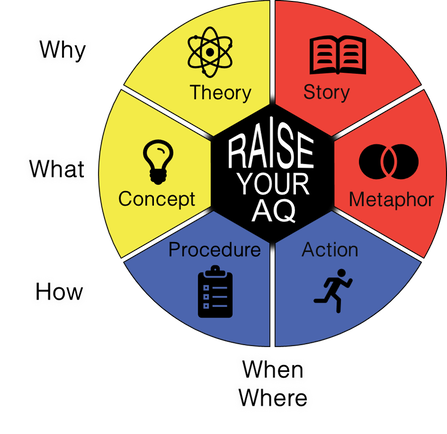
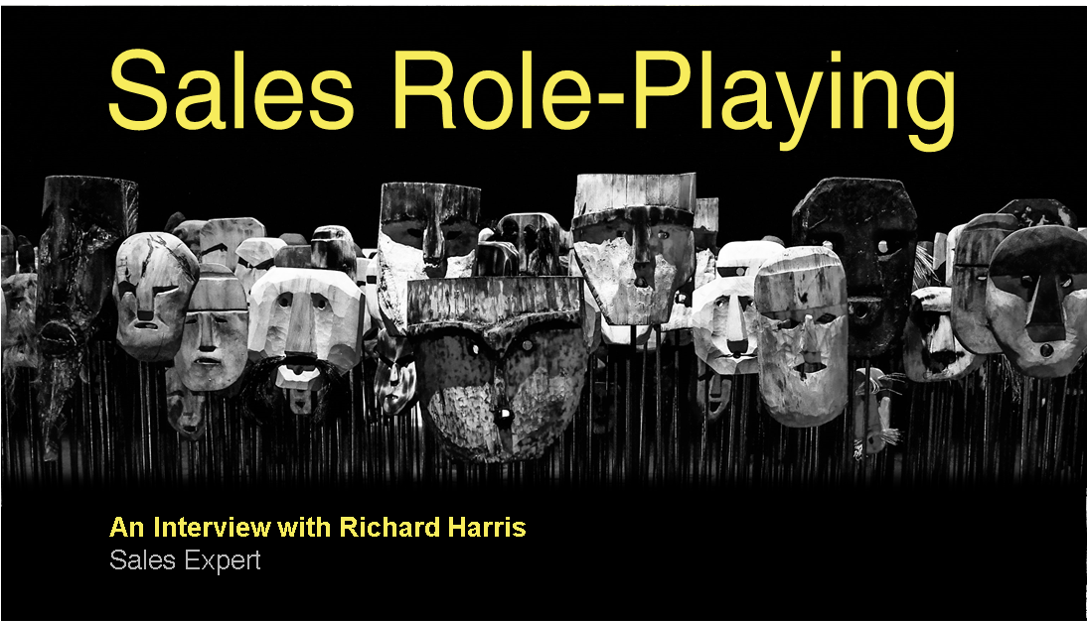

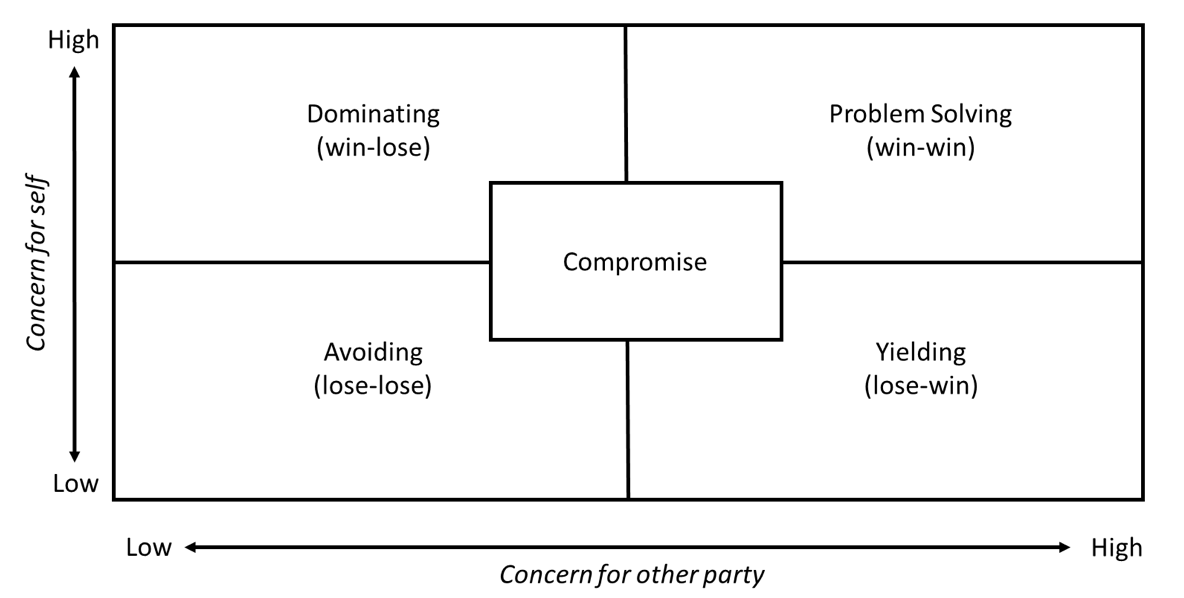
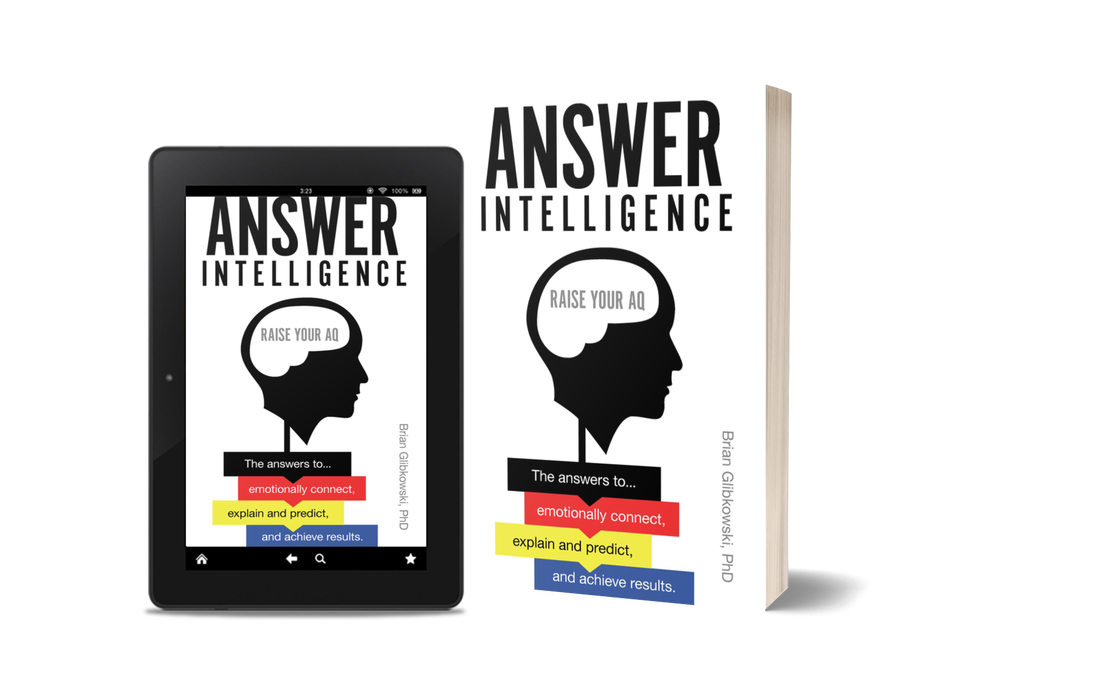
 RSS Feed
RSS Feed